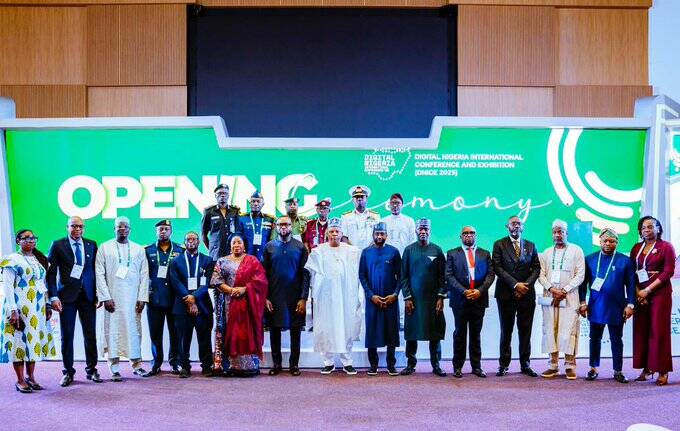Vice President Kashim Shettima announced on Tuesday that the administration of President Bola Tinubu has successfully ended the era of “volatility and unpredictability” that previously defined Nigeria’s economy.
He made the declaration in Abuja while inaugurating the Digital Nigeria International Conference and Exhibition 2025, which is themed: “Innovation for a Sustainable Digital Future: Accelerating Growth, Inclusion, and Global Competitiveness.”
Shettima argued that the administration’s “daring” economic reforms were necessary to address global challenges, including economic uncertainties and the rapid displacement of traditional jobs by emerging technologies.
He asserted that these reforms have already stabilised the economy, boosted investor confidence, and attracted global recognition.
He cited Nigeria’s recent sovereign rating upgrades from global agencies as evidence of international confidence.
He mentioned the Fitch’s upgrade of Nigeria’s sovereign rating to B with a stable outlook and the Moody’s lifting of the nation’s issuer rating to B3 with a stable outlook.
READ ALSO
“The world is taking note of the steady course the nation is maintaining,” Shettima stated, adding that the next phase involves ensuring these macroeconomic gains “trickle down to the people,” from local traders to multinational corporations.
He stressed that the nation must look to digital solutions, moving beyond “quick wins” to develop “deep-tech solutions” that address foundational challenges in critical sectors like agriculture, health, logistics, and governance.
Shettima outlined the Tinubu administration’s three strategic pillars for long-term stability.
The first pillar, people, focuses on building digital talent through initiatives such as integrating digital literacy into school curricula and the 3 Million Technical Talent (3MTT) programme.
The second pillar, infrastructure, centres on constructing the broadband “superhighway” through projects like Bridge and 774, aimed at ensuring high-speed connectivity across all regions.
The third pillar, policy, seeks to create an enabling environment, exemplified by successful cashless reforms that have fostered a dynamic fintech ecosystem.
The administration is also in advanced stages of passing the National Digital Economy and e-Governance Bill.
He emphasised that this future places young Nigerians “at the front seat,” driving the inclusive growth envisioned by Tinubu.
He further solicited the support of the private sector, describing them as the “pillar of the nation’s digital economy.”
Earlier, the Minister of Communications, Innovation and Digital Economy, Bosun Tijani, noted that the policies are on track to boost the country’s digital infrastructure.
Director-General of NITDA, Kashifu Inuwa Abdullahi, and the CEO of the Nigeria Data Protection Commission (NDPC), Vincent Olatunji, also commended the leadership’s commitment to harnessing the nation’s digital potential through collaboration and innovation.
